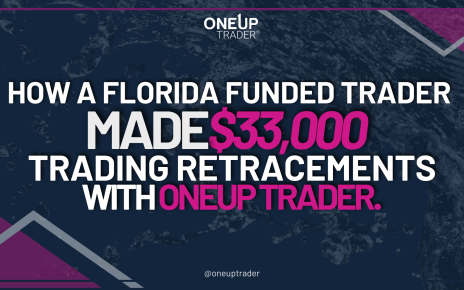The investment industry is full of opportunities but also plenty of risks and dangers. That’s why it is essential to understand futures regulation and how legal time frames such as the Commodity Exchange Act or the regulatory bodies in other countries protect market participants like you and your profits and savings.
Security is essential when it comes to trading futures because of the leverage and margin you can trade with. It could mean big losses which regulatory bodies will try to protect you from, apart from fraud.
It is important to read as much information as possible since futures are risky and volatile instruments. Take a look at this article to learn all about futures and market regulators.
Are futures trading regulated?
Regulations will always be part of the trading world. They are necessary to ensure your funds and protect you from any financial mismanagement.
However, this means that both traders and brokers must follow rules. A broker is the intermediary between you and the securities exchange that will ensure the futures regulation.
In the United States, the Commodity Exchange Act grants security to financial firms, brokers, traders, and other market participants. This is the basis of the rules that regulatory U.S financial bodies follow.
Any futures regulation, options, cash settlement, commodity trading, futures contract, or other financial products or requirements will be overseen by the CFTC, the NFA, and SEC, always based on the Commodity Exchange law.
What is the role of market regulatory bodies in the world?
Regulatory bodies exist to protect and ensure public interest, and also to protect market participants. They establish certain terms and conditions that a broker must follow in order to comply with their futures regulation.
They then monitor the practice and ethics of these brokers which include being transparent and fair to their clients and offering quality futures products.
Discover the futures contracts you can trade with OneUp Trader in funded accounts
In 1936, the Commodity Exchange Act was passed to build the base of the framework the Commodity Futures Trading Commission has to act in accordance with. In other words, it is the law that regulates commodity trading and futures products. The Commodity Futures Trading Commissions promotes competition and transparency in any futures contract.
Commodity Futures Trading Commission (CFTC)
It was the year 1974 in the American union. The country was living in the historical context of the post-oil crisis and Richard Nixon’s resignation. This was the year when the U.S. federal agency Commodity Futures Trading Commission CFTC was established by the Commodities Futures Trading Commission Act.
The CFTC is based in Three Lafayette Centre 1155 21st Street, NW Washington, DC, and regulates derivatives markets and securities such as futures contracts and options in order to protect the economy and the public. The markets ensured by the CFTC are very important for the U.S. economy such as agriculture, energy, environmental, technology, and global markets. These five categories are also what their five committees are constructed for.
The financial technology industry is one of the CFTC newest futures markets to watch over because of the Bitcoin futures contract that was launched in 2017.
National Futures Association (NFA)
CFTC designated the National Futures Association or NFA to register all financial securities and intermediaries like brokers, commodity pool operators, and futures merchants to register their company. This U.S. self regulatory organization enforces futures contracts rules, creates regulations, and mediates cases. It works alongside the CFTC.
NFA began operating in 1982 and has enforced futures regulations to both firms and individuals trading futures. If they were to break the CFTC or NFA requirements, their licenses would be revoked, and they would have to pay a fine.
Securities and Exchange Commission
Securities and Exchange Commission, also known as SEC, was the first federal regulator in the securities market of the U.S. It was founded in 1934 by the Securities and Exchange Act.
This was one of the responses to the Great Depression in the U.S. that began in 1929 after the market crashed. Their main office is located at 100 F Street, NE Washington, DC. They have 11 other offices around the country.
When futures contracts or other securities are offered to the market, they must first be approved and registered by the SEC. Brokers and firms must also be recognized by this U.S. government agency to ensure and protect main street investors who confide their funds and trades in futures contracts.
The NFA and its role in regulation
Futures regulation gives security to both a broker or a firm and traders. They register any security exchange and comply with rules to ensure futures products. The NFA also enforces their authority by imposing disciplinary actions to those who break the rules.
In order to do this, they have real time surveillance on securities and markets. The National Futures Association offers investors and traders a free guide to read up on any registered broker, company, or individual.
Difference between CFTC and SEC
The CFTC and the SEC were created by different legislations, the Commodities Futures Trading Commission Act in 1974, and the Securities Exchange Act in 1934 respectively. Each regulatory body was created for a different reason under a specific historical context.
The SEC is responsible for the securities market while the CFTC is in charge of the commodity futures and the options market. The CFTC watches over five specific industries: global markets, technology, agriculture, and energy and environmental markets.
On the other hand, since the SEC will follow any security it could mean futures contract or any futures product, stock, investment contract, certificate of interest, transferable share, option, and many more.
The CFTC and SEC work together.
What are regulated futures contracts?
A futures contract is a financial contract that is subject to the rules of its regulatory body. Any futures contract could be a good option for you if you like to speculate with high leverage.
A regulated futures contract will allow you to buy or sell an asset at a certain price on a specific date. These assets can be interest rates, stocks, forex pairs, equity indices, commodities, and more recently crypto currencies. At the same time, you can trade things like volatility or weather.
Futures contracts allow traders and investors to access, through a broker, a very liquid market with lower spreads.
Tips to pick top regulated platforms

In order to access futures exchanges, you will need to pick a regulated platform. Platforms do not automatically give you admission to the entire futures exchange market. It is a good idea to see what market products they offer.
Good platforms will offer useful tools and features like alerts, live quotes, technical analysis, news, and more. These features are important to keep your eye on the market, and comply with the CFTC.
Your regulated platform will be your main navigation tool. It should offer one or more ways to trade. It can be from your desktop or downloading to your computer, tablet or phone. It will depend on your needs.
Conclusion – Futures contract and security
If you want to get into the market and have access to a specific asset or futures exchanges it is important that they are regulated by U.S. authorities. The Commodity Exchange Act is what opened the commodity futures regulations in the U.S. after great economic risk.
These regulatory bodies have a positive impact on the economy of the US to ensure that the securities, asset, cash settlement, and the public interest on futures products and futures contracts.
The most important U.S. and well-known financial regulatory participants around the world are the CFTC, the SEC, and the NFA. They play an important role in the requirements and protection needed for the risk in the market.




